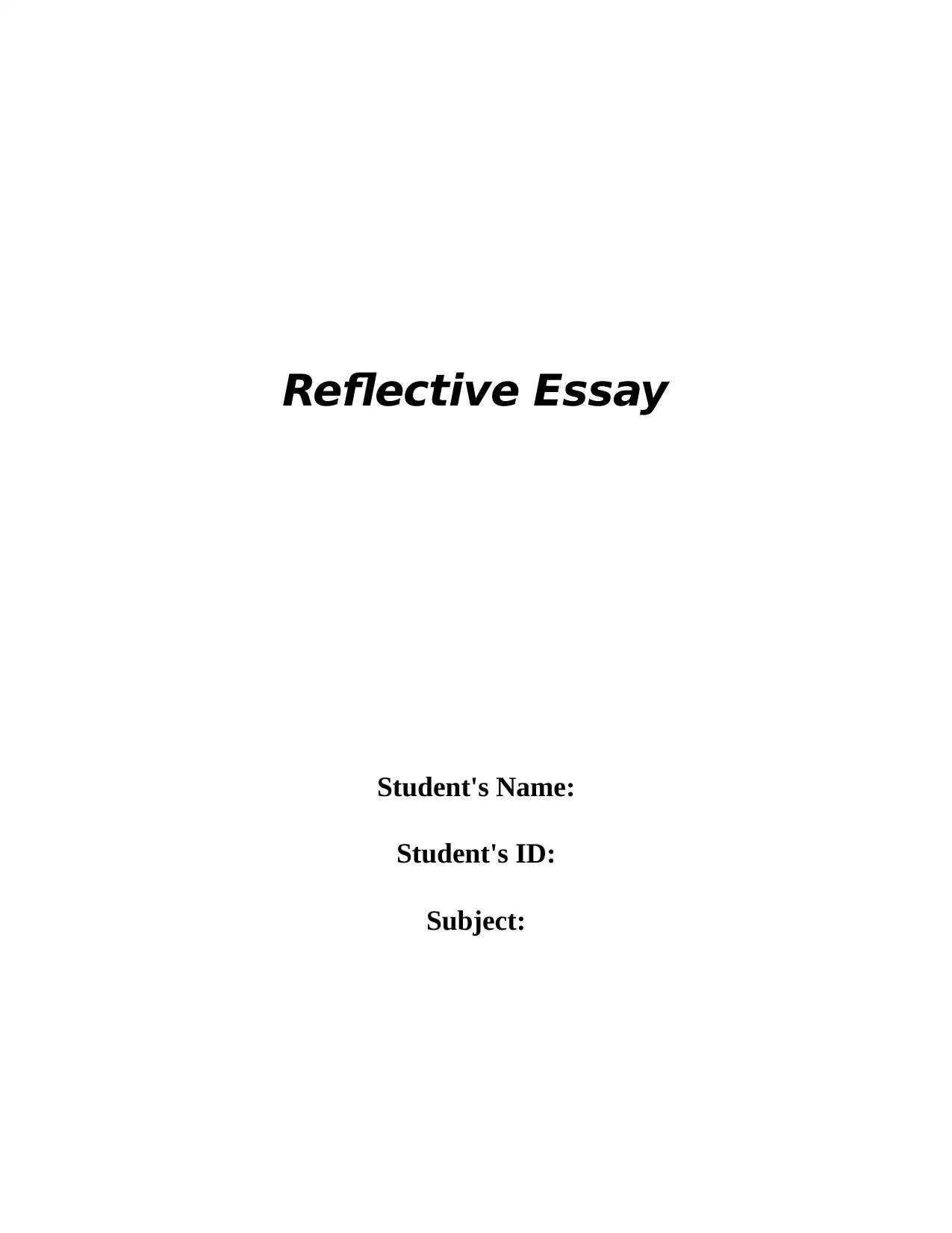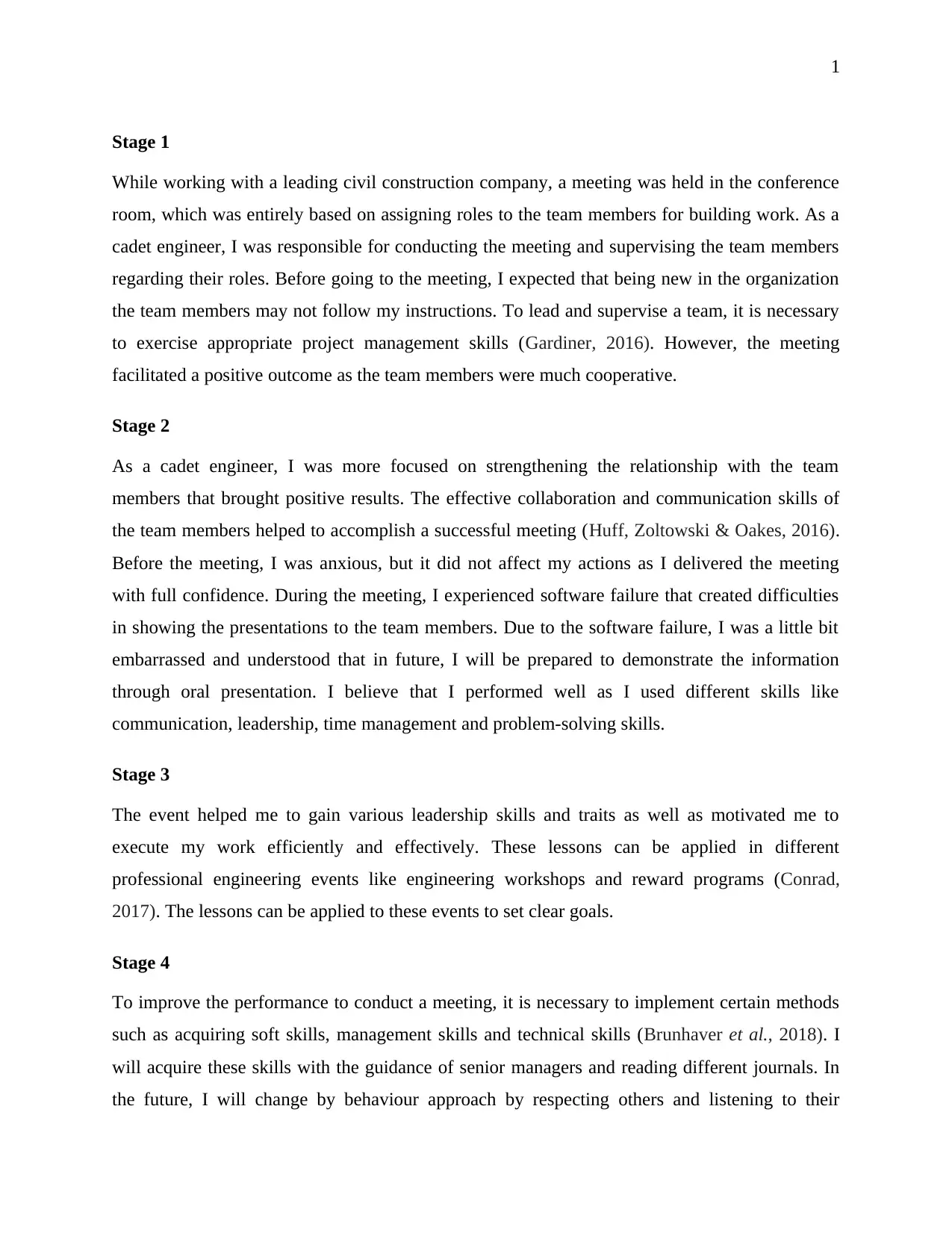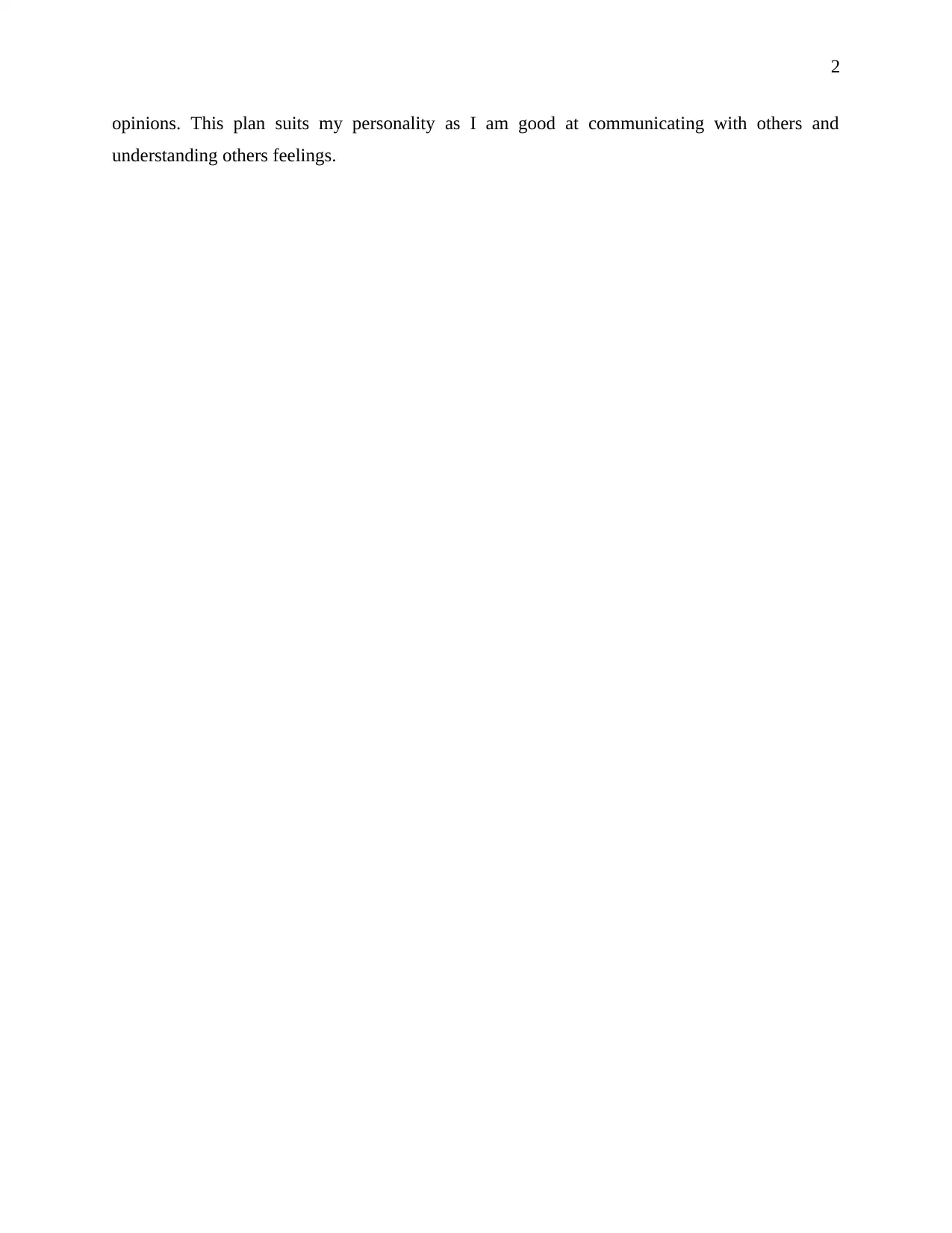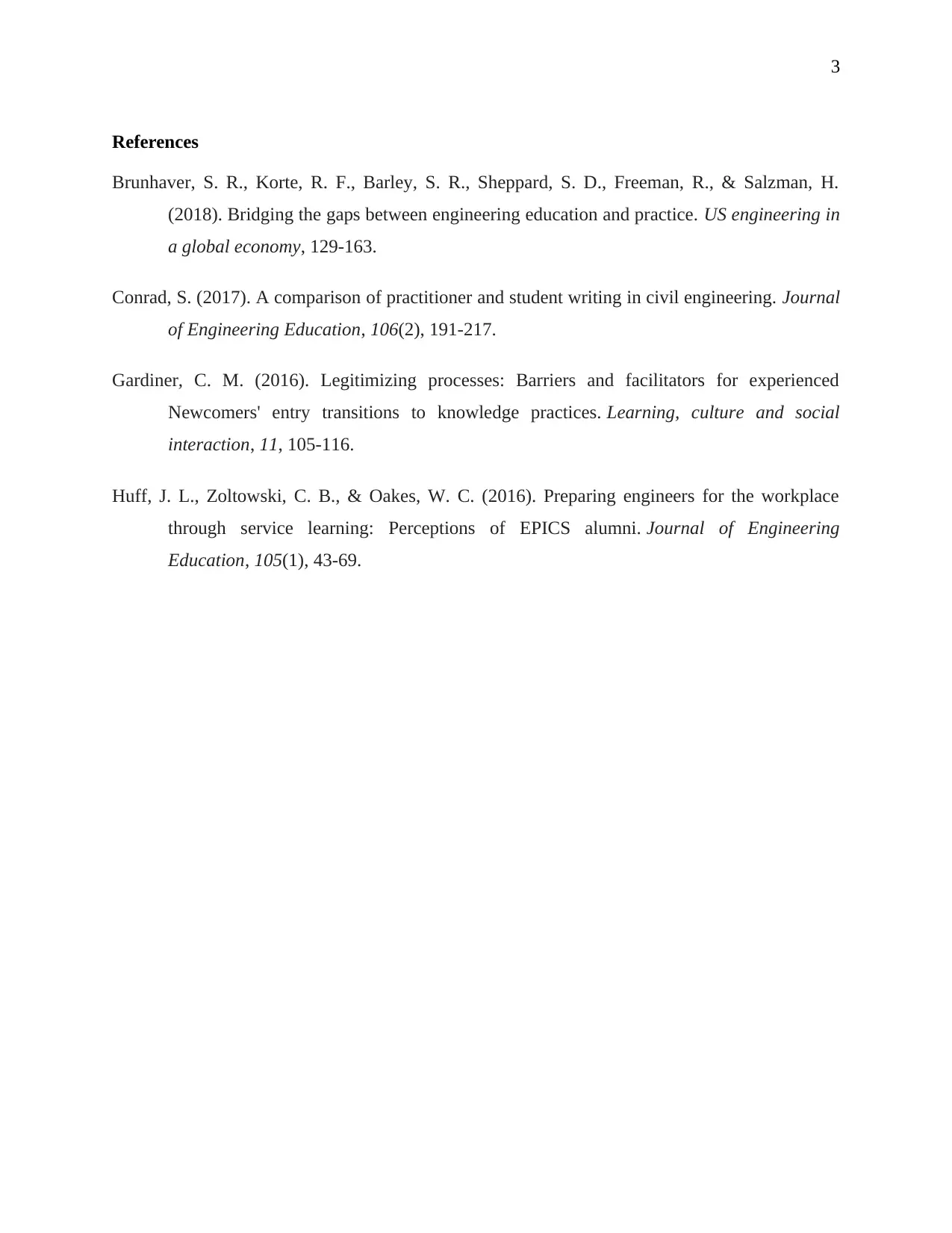Reflective Essay: Workplace Experience in Civil Engineering
VerifiedAdded on 2022/09/15
|4
|588
|14
Essay
AI Summary
This reflective essay details a civil engineering cadet's experience during a team meeting at a construction company. The essay follows a structured approach, beginning with a description of the event and the cadet's role in assigning responsibilities. The cadet anticipated potential challenges due to their newness but found the team cooperative. The second stage analyzes the event, highlighting the cadet's focus on building relationships, the team's communication skills, and an unexpected software failure that led to a change in presentation methods. The cadet reflects on their performance, emphasizing the use of various skills like communication and leadership. Stage three focuses on the lessons learned, particularly the development of leadership skills applicable to other professional engineering events. The final stage outlines a plan for improvement, including acquiring soft, management, and technical skills through senior guidance and research, with a commitment to changing their approach to be more respectful and receptive to others' opinions. The essay provides a comprehensive reflection on workplace experiences and professional development.
1 out of 4










![[object Object]](/_next/static/media/star-bottom.7253800d.svg)